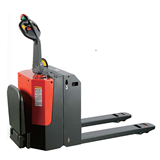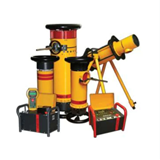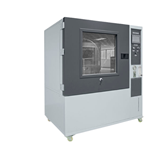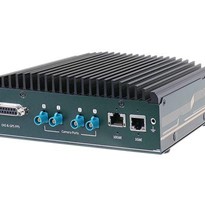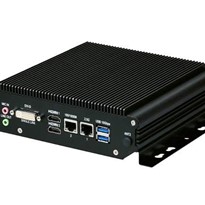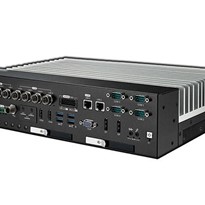The technology industry of Taiwan has always focused on carbon reduction, energy conservation, and environmental sustainability, among other issues. Having established a solid foothold in the automotive electronics and intelligent transportation solutions markets for years, SINTRONES Technology Corp. (SINTRONES) has also begun its attempt to get involved in green engineering and environmental sustainability by leveraging its technologies.
For over 13 years since its founding, SINTRONES has focused and engaged in providing automotive electronics, in-vehicle computer systems, and other related technologies. Specifically, vehicle-related system products account for 80% of SINTRONES' revenue, whereas roadside equipment-related products, such as charging piles, intelligent poles, and traffic enforcement facilities, constitute 20% of its revenue. SINTRONES' primary sales region is Europe, followed by the U.S. and Japan.
Identifying traffic conditions using AI to reduce vehicle exhaust emissions
"In the past, detection of road conditions in general only involved collecting data in combination with some application scenarios similar to smart poles. However, overseas markets have developed to a level where changes in traffic flow can be captured through cameras, and peak and off-peak periods can be determined through AI and machine vision technologies. At the same time, traffic flow can be regulated by adjusting traffic lights to reduce exhaust emissions from idling vehicles. On the whole, this is a strategy for environmental sustainability," SINTRONES CEO Kevin Hsu explained.
Following the current shift from fuel to electric vehicles taking place in the global automotive market, SINTRONES has not failed to seize this market opportunity, as evidenced by the gradual entry of its in-vehicle computers into the supply chains of large-sized modes of transportation such as electric buses, delivery trucks, and trains. SINTRONES in-vehicle computers can support real-time analysis of vehicle conditions via digital dashboards, center consoles, and LTE/5G technologies.
In intelligent transportation, SINTRONES in-vehicle computers save energy in multiple ways. For instance, the SINTRONES’ driving system alerts the driver of the vehicle's high energy consumption and advises them to avoid pressing hard on the accelerator pedal when real-time energy consumption is greater than the average energy consumption based on calculations made by the driving system. It also lowers energy consumption by synchronously controlling the range of change of the accelerator pedal, increasing the vehicle's driving range. Moreover, the driving system also enhances the control of the accelerator pedal in consideration of real-time road conditions to expand the recharging capacity of the vehicle, which in turn enables synchronous control of acceleration and braking to increase the driving range of the car and reduce energy consumption.
SINTRONES and AUO Group join forces to create win-win opportunities
In addition, AUO Group has become one of the significant shareholders of SINTRONES after investing in the company. At the same time, both parties have initiated close collaboration in the automotive factory-installed market. As revealed by Mr. Hsu, the opportunity for collaboration with AUO primarily arose from AUO Group's ideas for transformation, where one of the focuses was to engage in development toward a diverse range of vertical applications. SINTRONES' long-established foundation in intelligent transportation has earned a great recognition from the market, while the company is also well-established in the technical aspect of this field. With a reluctance to limit its development to the area of panels, AUO approached SINTRONES to establish a mutual collaboration based on the strengths of both parties.
Mr. Hsu added that SINTRONES and AUO are working together in the field of charging piles. Thus, we can imagine a charging pile will be equipped with its typical functions and serve as digital signage. At this point, AUO display panel technology will come into play, giving plenty of room for imagination in terms of the application scenarios of charging piles. He conceded that Delta Electronics and Lite-On are generally perceived as significant pile market players. Coupled with the fact that companies must possess rich technical capabilities for power management to penetrate this market, breaking into it is widely seen as a highly challenging task.
However, Mr. Hsu elaborated that SINTRONES' excellent R&D capabilities in power management constitute part of its unique competitiveness. Power consumption issues have been taken into account in the design of this type of futuristic charging pile. These charging piles have lower power consumption than a dehumidifier. This shows that even with the addition of display panel functions, these charging pile systems are still environmentally friendly and low-power. Currently, charging piles jointly developed by SINTRONES and AUO have entered the implementation stage.
In terms of automotive electronics, AUO is known to be one of the world's central suppliers of most automotive display panels. Therefore, SINTRONES has also begun shifting its focus from the automotive aftermarket to the factory-installed market with AUO's help, thus making gains in various products such as center consoles and instrumentation.
Paving the way for environmental sustainability with core competitiveness in power supply design capabilities
Echoing SINTRONES R&D capabilities in power management mentioned earlier, Mr. Hsu added that while being relatively quite familiar with several platforms such as AMD and Intel in the past, SINTRONES has also recently adopted the NVIDIA A4500 GPU in its effort to penetrate the self-driving bus market in Europe, mainly by incorporating the fanless design of Intel i9 processors and NVIDIA's A4500 into in-vehicle central computers. Meanwhile, SINTRONES has also embraced the NXP i.MX applications processors based on the Arm architecture following its collaboration with AUO on factory-installed consoles. Regardless of the chip platform, power management design capabilities become indispensable once these processors are applied to vehicles. Therefore, SINTRONES has also directed its solid foundation in the automotive field to applications such as charging piles and intelligent poles.
Furthermore, backup power supply design for vehicles is also one of SINTRONES' strengths. The European market has previously stipulated that all European passenger cars must be equipped with the eCall system, which will automatically make an international emergency call in the event of a severe traffic accident. It can also signal the local rescue team so medical personnel can rescue the victims. SINTRONES' solution does not end there. Aside from transmitting signals, it also ensures that images of the accident can be captured and synchronously uploaded to the cloud to provide more information to the relevant units for emergency rescue. Mr. Hsu shared that the SINTRONES solution is evidently very much ahead compared to European standards. He also believed that SINTRONES could already satisfy such application scenarios as we move into a world of image transmission.
To penetrate the supply chain of top-tier international customers and maintain a long-lasting relationship with them, SINTRONES has continually used AEC-Q100-compliant components from major global chip makers (e.g., NXP and Analog Devices, Inc.) in all its products. Therefore, SINTRONES various in-vehicle solutions can meet the automotive industry's ISO 26262 Functional Safety Standard. On SINTRONES' market expansion strategy for 2023, Mr. Hsu also said that the company would gradually speed up the pace of technology incorporation while responding to initiatives such as sustainability and energy conservation, fulfilling its responsibility for the global environment by leveraging its technological strengths.
According to SINTRONES Chairman Kevin Hsu, the highest level of development for any business opportunity is "sustainable growth." SINTRONES is committed to minimizing its impact on the environment and bringing a positive cycle for environmental protection, which is not only in line with the global trend of net-zero emissions but also creates vitality and benefits for the company.
Photo: SINTRONES
SINTRONES and AUO Group have joined forces to integrate various key technologies for intelligent digital cockpits, aiming to turn vehicles into the third most crucial bright space shaped by 5G and AIoT after homes and offices, which in turn will become the development focus of intelligent vehicle technologies.
Photo: SINTRONES






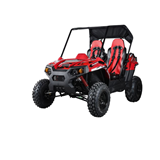


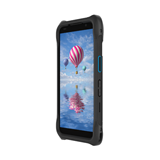

-160x160-state_article-rel-cat.png)


